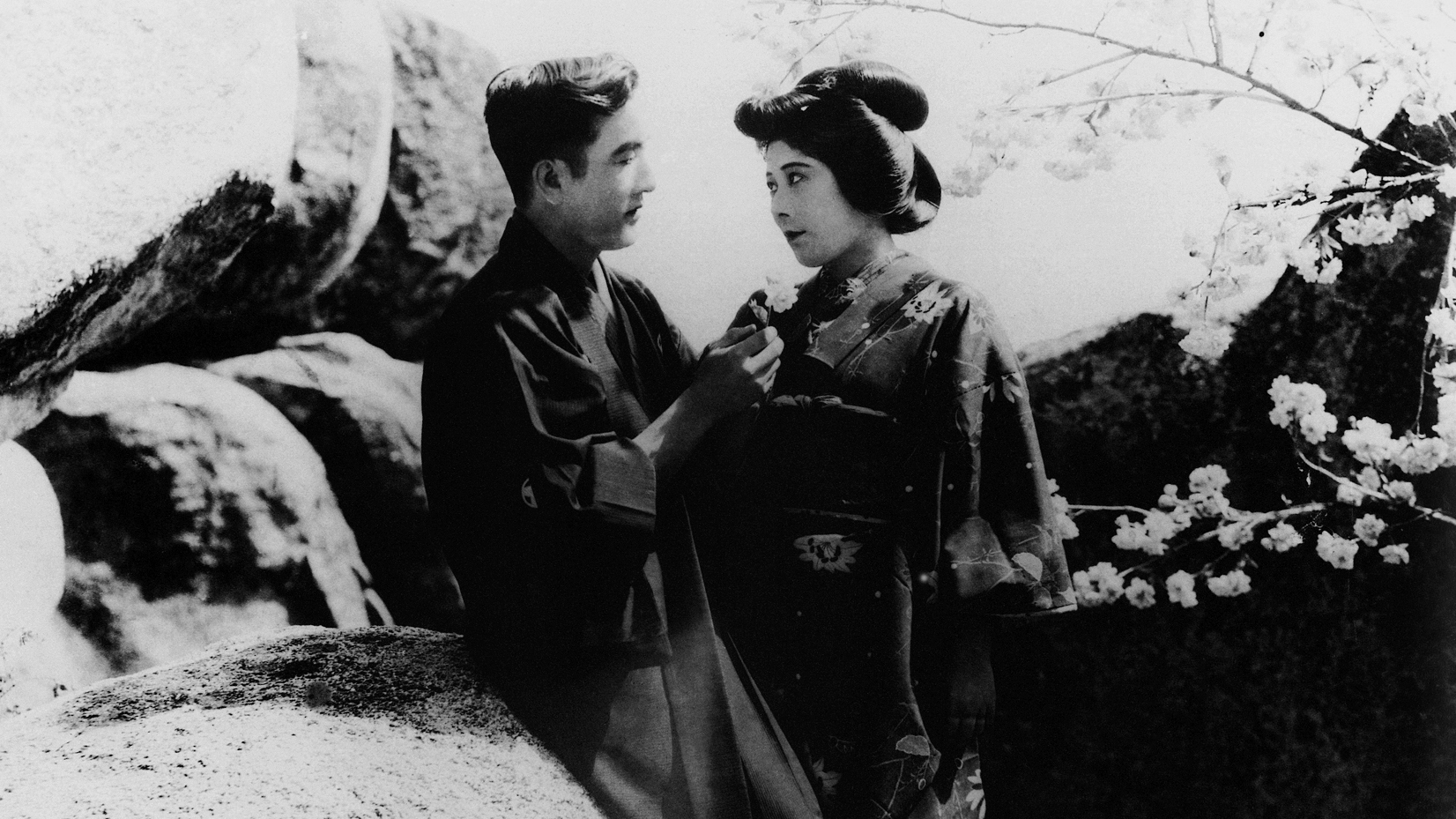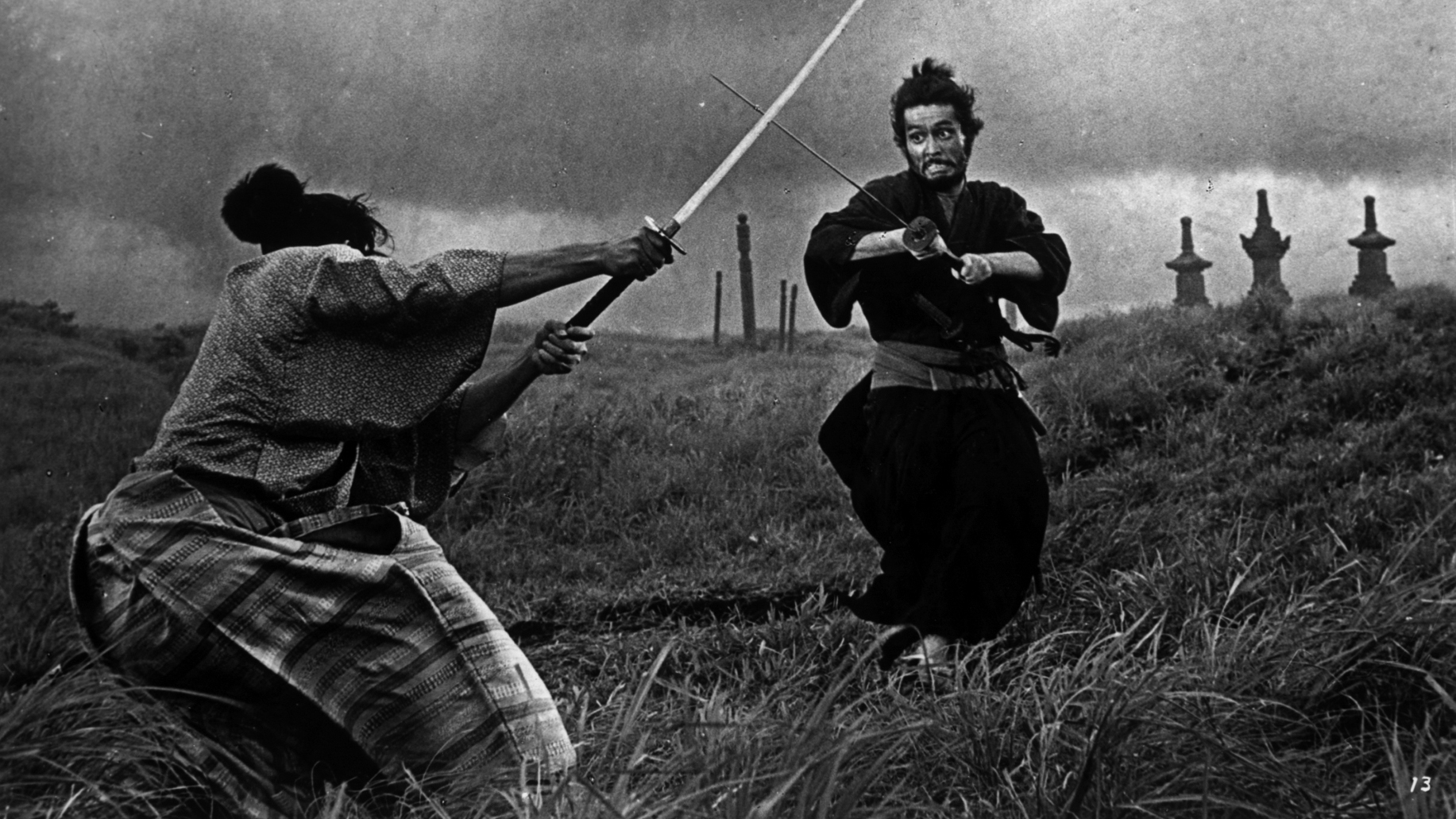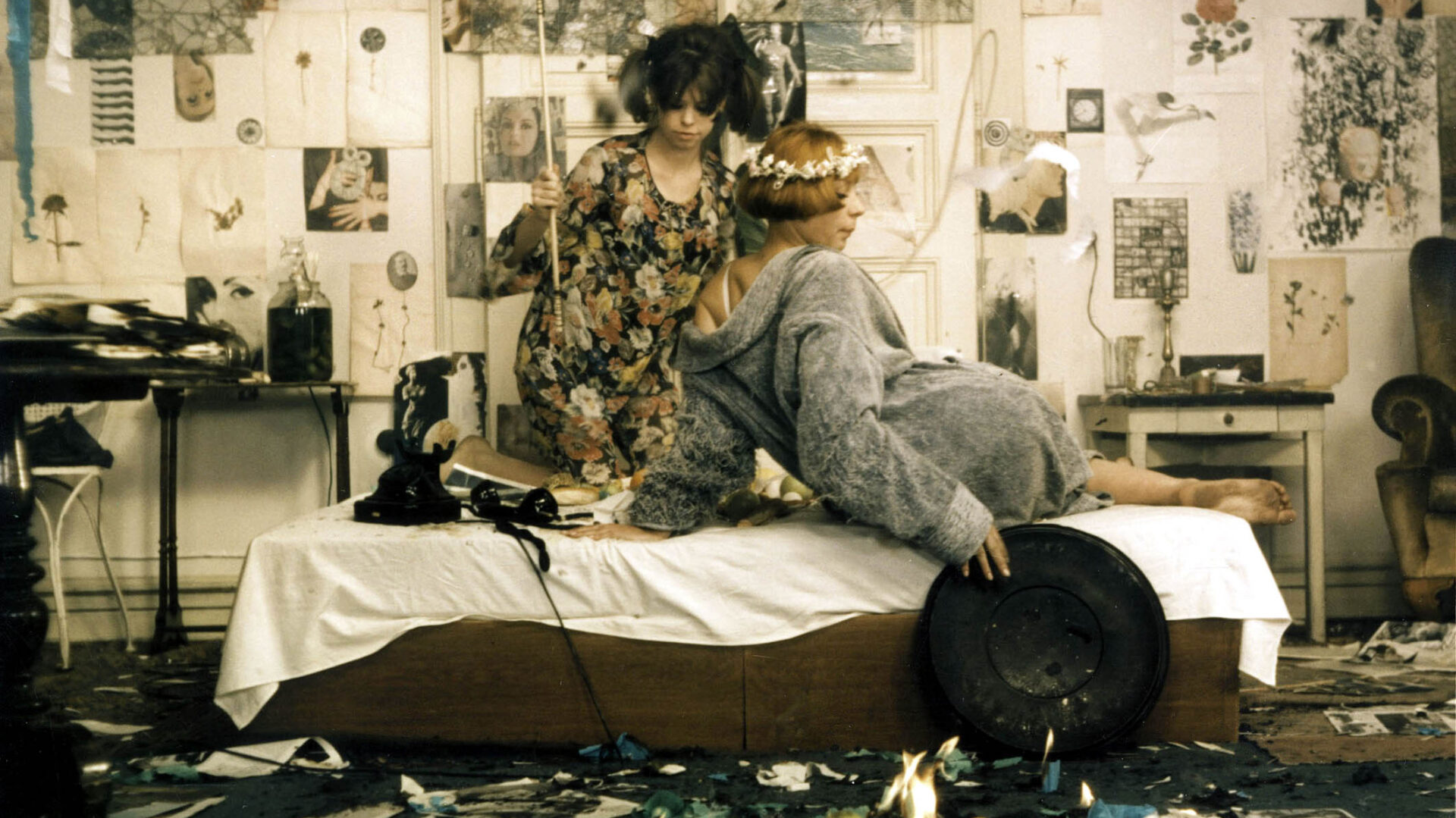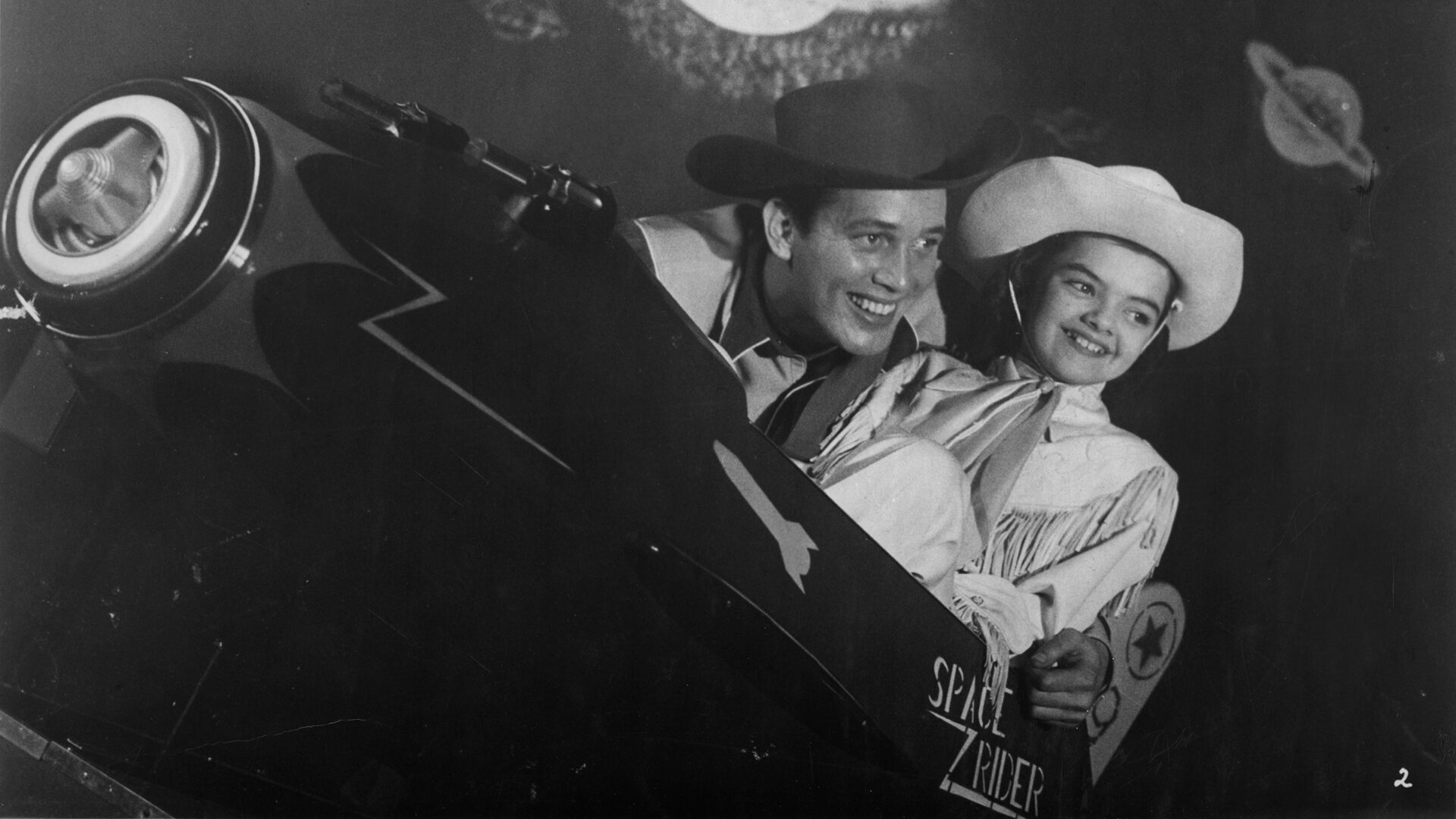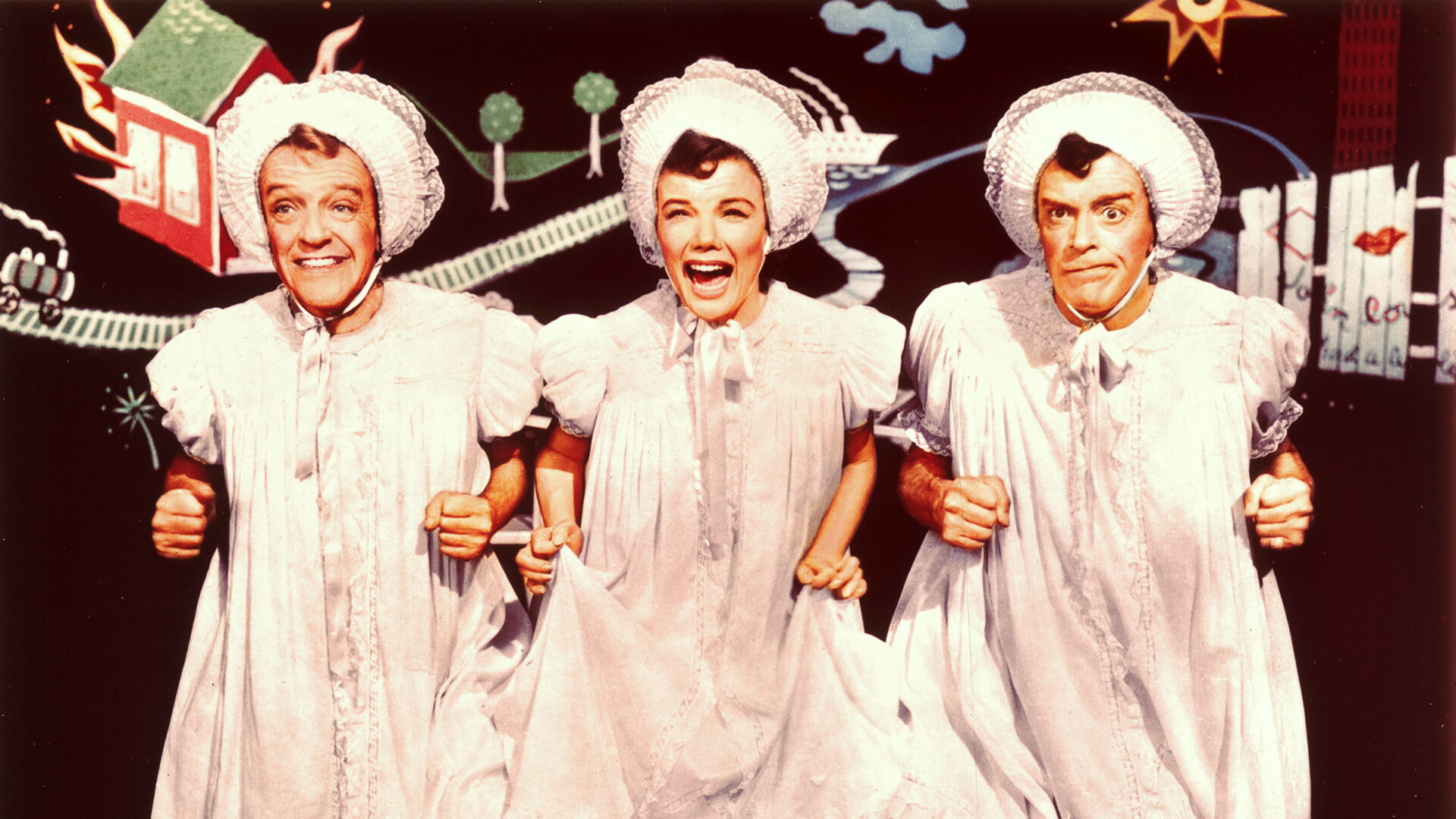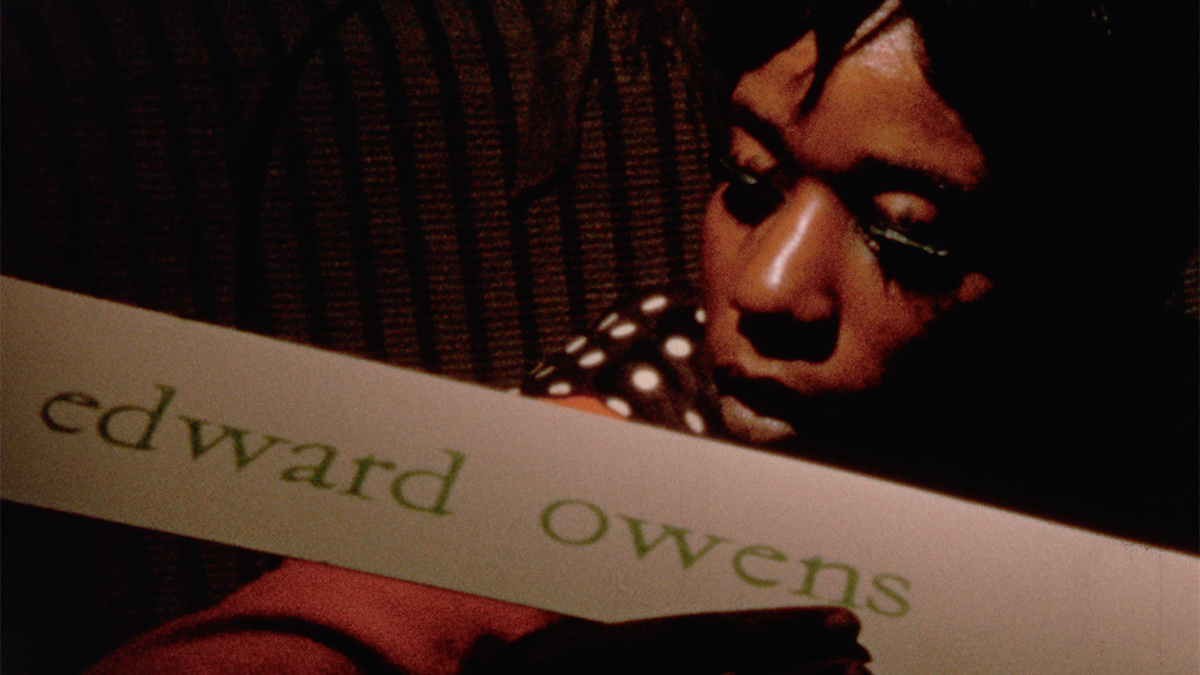Our screenings are held at multiple venues around Chicago. This season you can find us at:
• The Music Box Theatre
3733 N Southport Ave — Directions • Parking
Tickets: $11 – $12
• The Auditorium at Northeastern Illinois University (NEIU) (inside of Building E)
3701 W Bryn Mawr Ave — Directions • Campus Map
Tickets: $10
***Complimentary Parking for audience members on Wednesday nights is available in Parking Lot D adjacent to the Bryn Mawr entrance.***
Want to attend our screenings but having financial hardships? Contact info@chicagofilmsociety.org
SEASON AT A GLANCE
January ▼
Sun 1/5 at 11:30 AM
A Girl in Every Port…………… Music Box
Wed 1/22 at 7:30 PM
The Grapes of Wrath ……………… NEIU
Wed 1/29 at 7:30 PM
My Winnipeg ……………… NEIU
February ▼
Wed 2/5 at 7:30 PM
Choose Me ……………… NEIU
Sun 2/16 at 7:15 PM
The Unknown …………… Music Box
Wed 2/19 at 7:30 PM
The Love Parade ……………… NEIU
Wed 2/26 at 7:30 PM
Light of Day ……………… NEIU
March ▼
Wed 3/5 at 7:30 PM
International House ……………………… NEIU
Mon 3/10 at 7:00 PM
The Symbol of the Unconquered ……………… Music Box
Mon 3/17 at 7:00 PM
The Fast and the Furious: Tokyo Drift ………… Music Box
Wed 3/26 at 7:30 PM
History is Made at Night ………………… NEIU
April▼
Sun 4/6 at 7:00 PM
Onion City Experimental Film Festival ………. Chicago Filmmakers
Wed 4/9 at 7:30 PM
Spring Night, Summer Night ………. NEIU
Sun 4/13 at 11:30 AM
The Dragon Painter …………… Music Box
Mon 4/21 at 7:30 PM
Harakiri …………… Music Box
Wed 4/30 at 7:00 PM
Daisies ………. Music Box
May▼
Wed 5/7 at 7:30 PM
Corn’s-a-Poppin‘ ………. NEIU
Wed 5/14 at 7:30 PM
The Band Wagon ………. NEIU
☆ Add the schedule to your google calendar
☆ Sign up for our newsletter for screening reminders!

Sunday, January 5 @ 11:30 AM / Music Box
A GIRL IN EVERY PORT
Directed by Howard Hawks • 1928
A bracelet charm inscribed with a heart and an anchor sparks conflict and real connection in Howard Hawks’s uproarious and implicitly romantic comedy about fellowship on the high seas, made long before better-known Hawks tales of male friendship like Only Angels Have Wings and Rio Bravo. Spike (Victor McLaglen) and Salami (Robert Armstrong), two sailors turned nemeses turned incredibly close friends, share camaraderie and the pursuit of the same ladies, from Coney Island to Rio de Janeiro. Hawks, a maestro at depicting flirtatious, tongue-in-cheek verbal scuffling, wrote the film too, and each intertitle is a delight; conversation feels as rapid-fire here as it does in his talkies. Second-billed Louise Brooks only appears in the third act as Mam’selle Godiva, a circus performer who threatens to turn the duo into a throuple (or tear them apart). She’s the quintessential Hawks lady: independent, self-motivated, bites back. When Spike considers giving up skirt-chasing and seafaring to put a ring on it, Salami perceives the potential union as a threat. What was life before that first fist fight? The heart is an anchor, after all. (RIN)
78 min • Fox Film Corp • 35mm from George Eastman Museum
Preceded by: “A Clean Shaven Man” (Fleischer Studios, 1936) – 7 min – 16mm
Live musical accompaniment by David Drazin!
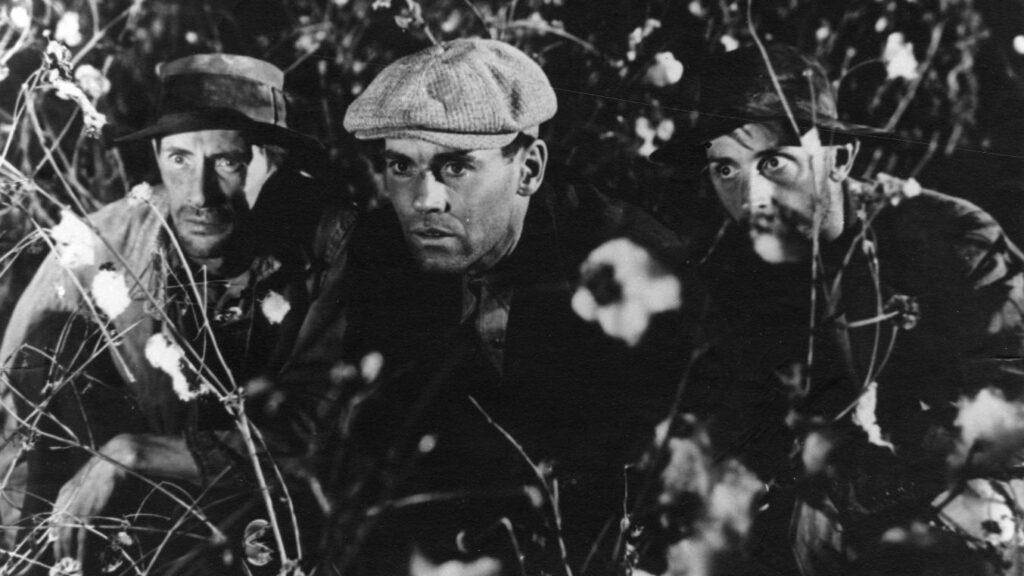
Wednesday, January 22 at 7:30 PM / NEIU
THE GRAPES OF WRATH
Directed by John Ford • 1940
The 1939 publication of John Steinbeck’s The Grapes of Wrath was a massive, unruly cultural event, a frequently condemned and banned novel that became the year’s bestseller and winner of the Pulitzer Prize. Here was a book about Dust Bowl migrants that aspired to the poetry of the King James Bible, and 20th Century-Fox treated it accordingly, like a sacred text that demanded a scrupulous, faithful translation that (mostly) did not flinch from the profane, earthy aspects of the source. (Screenwriter Nunnally Johnson did soften the ending, and defended that choice to emphasize “something that would keep the people who saw it from going out and getting so drunk in utter despondency that they couldn’t tell other people that it was a good picture to see.”) Henry Fonda stars as ex-con Tom Joad, who returns from prison to find his family’s Oklahoma home is no refuge, but just another piece of property snatched away by predatory bankers and speculators. Soon the Joad family packs up their jalopy with all their earthly possessions to head west, to the promised land of California, only to be jeered at as Okies and chased away by hired cops. It remains astonishing that a major studio embraced the ugliness of Steinbeck’s novel head-on, and released a righteously angry depiction of unvarnished poverty that amounts to a call to revolution and a Molotov cocktail of prairie fire. Upon the film’s release, the critical reaction was effusive, bordering on rhapsodic. “There is no country in the world where such a film of truth could be made today,” averred Otis Ferguson in The New Republic, “let alone with such a smash that people pack into theaters to see it, and take it away home with them after. This is a thing not only to enjoy but to be proud about.” (KW)
128 min • 20th Century-Fox • 35mm from Criterion Pictures, USA
Preceded by: Henry Fonda trailer reel – 10 min – 35mm
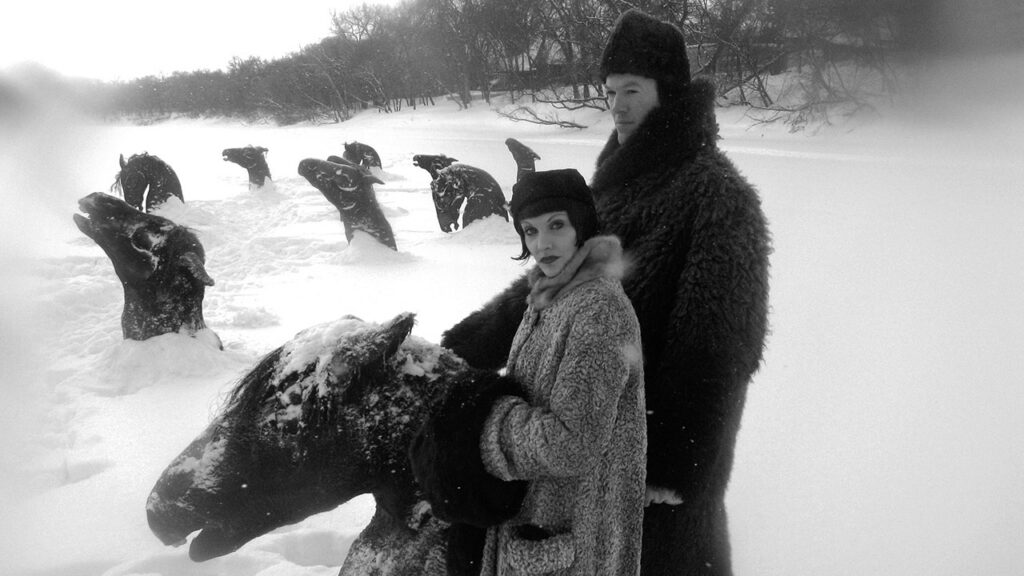
Wednesday, January 29 at 7:30 PM / NEIU
MY WINNIPEG
Directed by Guy Maddin • 2007
In an effort to describe the mystical techniques that produced My Winnipeg, Guy Maddin coined the term “docu-fantasia,” preemptively swatting away the idea that a film commissioned for Canada’s Documentary Channel might be anything close to conventional nonfiction fare. “Rather than having to research facts, I just conducted all my research in my memory and in my heart.” Through these interior lenses, he attempts to “film his way out” of his hometown, combining found and original video footage, reenactments, a variety of surreal local legends (Sleepwalkers! Séances! Man pageants! Bison stampedes!), and some serious psychological plumbing rendered ghostly and twisted via a patchwork of film and video formats. Maddin even brought B-movie great Ann Savage (star of Detour) out of retirement to play the part of his mother. Roger Ebert was so moved by the film that he wrote Maddin a touching letter describing his own hometown in his own “docu-fantasia” style: “That film just keeps on stirring in my mind. It is reality beyond reality…That’s exactly the way I think about Urbana, which, as I’m sure you know, has the Largest Rim-Supported Building in the World, the Boneyard Creek into which all the Indians threw themselves when they died, the Stadium that Red Grange Built, a house in which fairies once lived….” Even almost twenty years after its release, this eerie filmic exorcism may have the power to bring us all back home, whether we want to return or not. (RL)
80 min • Buffalo Gal Pictures • 35mm from Chicago Film Society collections, permission IFC Films
Preceded by: Guy Maddin trailer reel – 8 min – 35mm
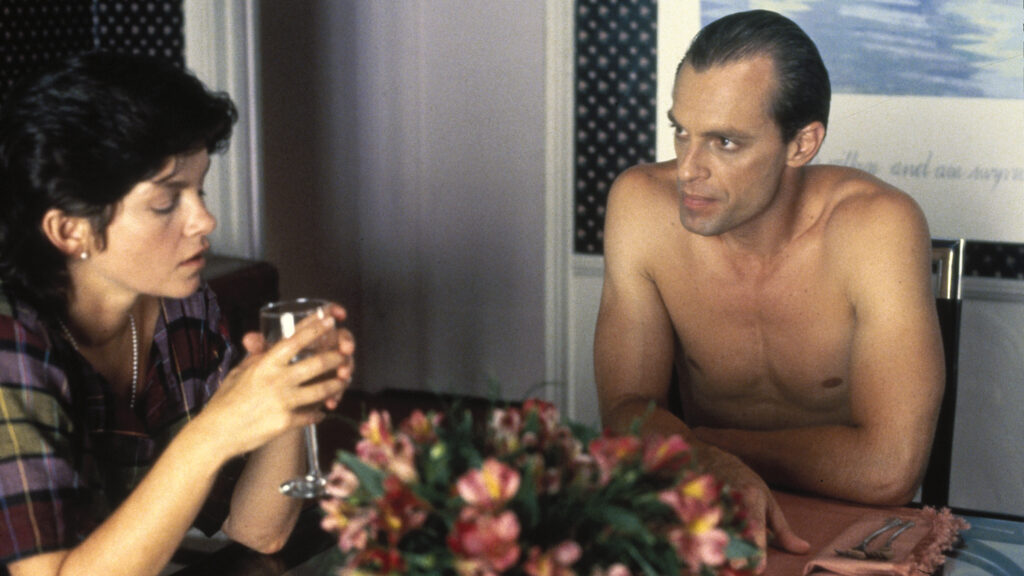
Wednesday, February 5 @ 7:30pm / NEIU
CHOOSE ME
Directed by Alan Rudolph • 1984
Fresh off a stay in a Las Vegas mental institution, Mickey (Keith Carradine) hightails it to Eve’s Lounge in Los Angeles, bragging of innumerable (and questionably credible) personal accomplishments and asking around for the bar’s owner, a former call girl named Eve. There does happen to be a former call girl named Eve working there (Lesley Ann Warren), and she does happen to own the bar, but she’s not the woman he’s looking for. Later that night, they kiss — but Eve goes home with another man (John Larroquette) while ducking a third paramour, Zack (Patrick Bauchau), and Mickey cozies up to another bar patron, Pearl (Rae Dawn Chong). Observing these travails is radio personality Dr. Nancy Love, the nom de guerre of Ann (Geneviève Bujold), who takes a special interest in Eve’s love life after the bar matron calls in to her program. The romantic roundelays among these characters and others play out with bitter humor and faintness-inducing sensuality, lit by neon signs perfectly reflected in fresh puddles and scored with classic bedroom jams courtesy of Teddy Pendergrass. Written and directed by the cultishly revered Alan Rudolph, Choose Me is frequently cited as one of the filmmaker’s greatest accomplishments and as one of the best American films of the 1980s, despite wavering availability on home video in recent decades. Projected, as this screening will be, in 35mm, it’s almost unbearably sexy. (CW)
114 min • Island Alive Releasing • 35mm from Park Circus
Preceded by: Alan Rudolph trailer reel – 10 min – 35mm
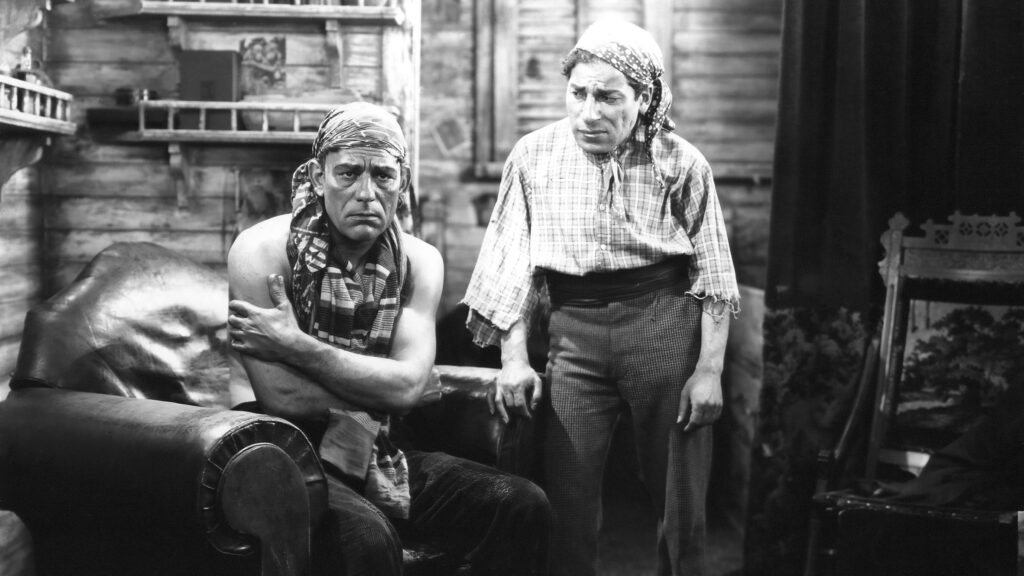
Sunday, February 16 @ 7:15 PM / Music Box
THE UNKNOWN
Directed by Tod Browning • 1927
Some films spin elaborate plots, with a relentless parade of character and incident, and others simply toss out a ludicrous premise and let the chips fall where they may. The Unknown is a specimen of the latter type, as simple and as serious as a wheelbarrow full of rocks. Lon Chaney stars as Alonzo the Armless, a fugitive sideshow performer who actually does have arms, but skillfully conceals them under a girdle, partly as an alibi for the police, partly as an expression of innate masochism. But Alonzo commits to the bit, using his feet to light cigarettes, fire guns, and throw knives at Nanon (Joan Crawford) as part of their circus act. Nanon warms to Alonzo, believing him to be both armless and harmless, a marked contrast with all other men in her life, who invariably try to grab, grope, paw, and throttle her. Will they ever marry without Nanon learning Alonzo’s intimate deception? The Unknown simply invites us to marinate in this impossibly perverse scenario for the duration. Critics in 1927 invariably fixated on its gruesome qualities, with plainspoken trade paper Harrison’s Reports conceding that “it is artistically acted and skillfully directed. But those facts do not atone for the offence given by the feature to every normal-minded movie-goer.” Latter-day sages from Guy Maddin (“mad-love cinema perfection, a psychology so bizarre it’s utterly plausible”) to Bob Dylan (who tweets movie recs now: “I told him to try The Unknown by Lon Chaney and go from there”) have championed Browning’s dark vision, which can now be enjoyed (?) with ten minutes of previously lost footage. Restored by George Eastman Museum with funding from the National Film Preservation Foundation. (KW)
66 min • Metro-Goldwyn-Mayer • 35mm from George Eastman Museum
Original live score by Whine Cave (Kent Lambert and Sam Wagster)
Preceded by: “Comes to a Point Like an Ice-Cream Cone” (Heather McAdams & Chris Ligon, 1997) – 18 min – 16mm
This experimental documentary about the sideshow and carnival culture of the early 20th century is composed largely of archival footage from the Circus World Museum in Baraboo, Wisconsin. Preserved by the Chicago Film Society with funding from the National Film Preservation Foundation. Laboratory services by Colorlab.
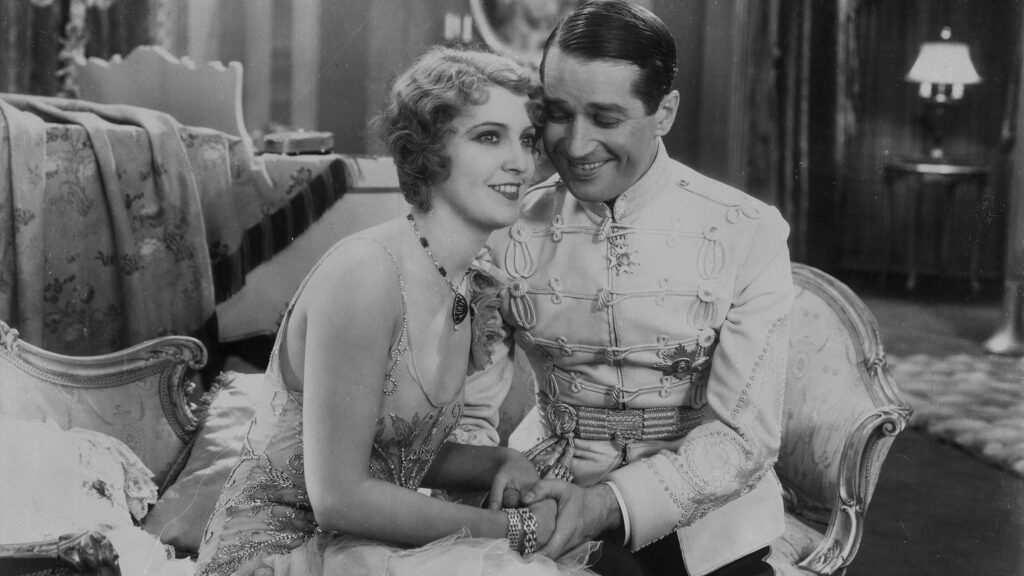
Wednesday, February 19 at 7:30 PM / NEIU
THE LOVE PARADE
Directed by Ernst Lubitsch • 1929
“If I’ve been happy. then you’re to blame / Oh, Paris, please, stay the same.” With this refrain in Maurice Chevalier’s introductory song in Ernst Lubitsch’s first musical, The Love Parade lays down a marker for its sophisticated emotional texture — rueful, melancholy, humbled, horny, and ultimately effervescent. The film proved an unlikely triumph and an act of chutzpah: adapted from a forgotten nonmusical play that had closed on Broadway after 32 performances over two decades prior, The Love Parade emerged as an original operetta with music and lyrics written expressly for the screen by Victor Schertzinger and Clifford Grey, produced at a time when Hollywood was still feeling out the talkies and taking its musical cues from bloated Broadway revues. Lubitsch had never made a sound film before, let alone a musical, and leading lady Jeanette MacDonald had never been in a movie at all. She stars as Queen Louise, the unmarried monarch of Sylvania, who has enough to do without fending off court gossip about potential suitors. Enter Count Alfred Renard (Chevalier, appropriately foxy), a Sylvanian attaché recently recalled from his embassy post in Paris for the crime of being too irresistible to too many local wives. Upon reading his personnel file, the queen swoons, but can she persuade the worldly lothario to settle for the ceremonial post of prince consort? Lubitsch and company make it all look so easy, as if inventing the screen musical were just another day at the office, an achievement so modest that they think nothing of bestowing a chorus to a pack of barking dogs. (KW)
109 min • Paramount Pictures • 35mm from UCLA Film & Television Archive, permission Universal
Preceded by: “Little Miss Everybody” (Murray Roth, 1929) – 8 min – 35mm from UCLA Film & Television Archive
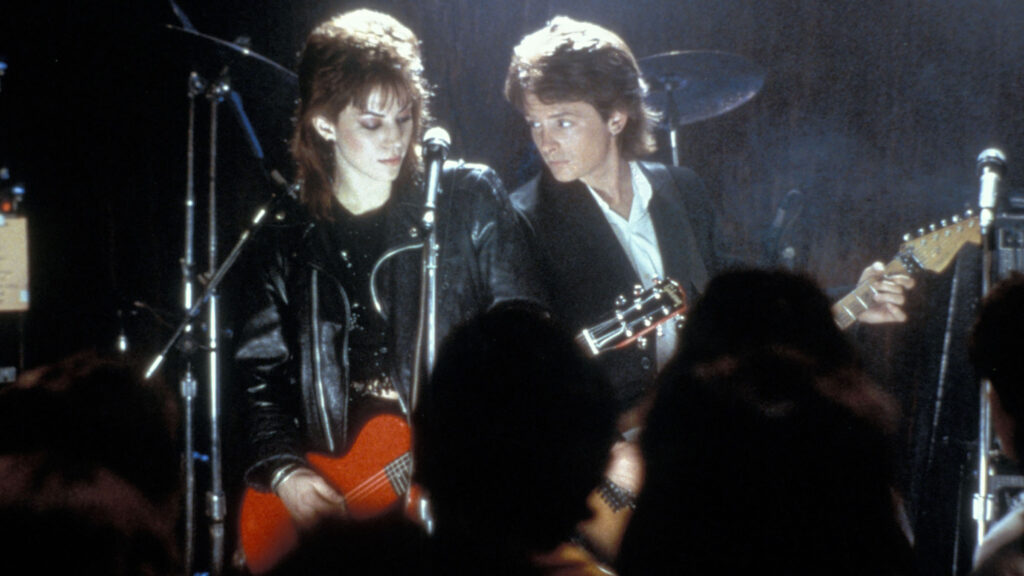
Wednesday, February 26 at 7:30 PM / NEIU
LIGHT OF DAY
Directed by Paul Schrader • 1987
Writer-director Paul Schrader has achieved a rare feat, managing over the course of his 50+ year career to create work of uncompromising vision that is (for the most part) popular with both critics and mainstream audiences. Light of Day, his melodrama about working class siblings in a struggling rock band, feels a bit neglected in comparison to entries in his heavyweight filmography that are referenced again and again — particularly Taxi Driver, American Gigolo, and Hardcore — all cinematic touchstones steeped in alienation and a particular type of embedded American violence. Light of Day‘s claim to fame is that it almost starred Bruce Springsteen, but when Schrader approached him with a script entitled “Born in the U.S.A.,” Springsteen never read it, and the film languished for years as Schrader moved on to work on Mishima. The Boss wasn’t shy about snagging the title for his own purposes, and to make amends he penned the song “Light of Day” for the film once it was resurrected with a new title and the unlikely pairing of rock star Joan Jett and America’s favorite time traveler, Michael J. Fox. Shot in Cleveland and Illinois by Schrader’s frequent collaborator John Bailey, it’s a vivid yet sometimes desolate portrait of Rust Belt loneliness and struggling artists, and holds within it a heartbreaking performance from the late Gena Rowlands as the siblings’ deeply religious mother. Schrader was raised by strict Calvinists, and the experience left a mark that is almost always present in the aforementioned uncompromising Schrader-vision. Popular Cleveland band The Generators influenced the classic rock soundtrack and were the inspiration for the film’s fictional band. Keep your eyes peeled for cameos from a baby Trent Reznor and the Chicago suburbs. (RL)
107 min • Tri-Star Pictures • 35mm from Paramount
Preceded by: Music Video for Tom Petty’s “Into the Great Wide Open” (Julien Temple, 1991) – 7 min – 35mm
Co-presented with CHIRP Radio 107.1 FM

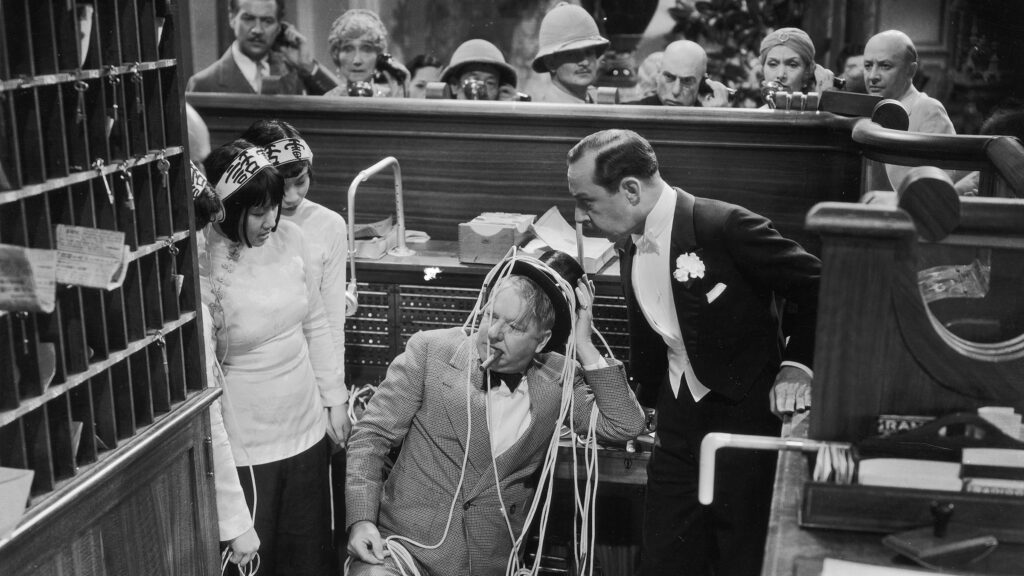
Wednesday, March 5 @ 7:30pm / NEIU
INTERNATIONAL HOUSE
Directed by A. Edward Sutherland • 1933
What if we told you there was a bonkers pre-Code vaudeville/musical ensemble comedy, a kind of low-rent Grand Hotel set in China, starring W. C. Fields as a beer-chugging aviator and Bela Lugosi as a hot-headed Russian general who can’t shoot straight? Well, what if we told you it’s got George Burns and Gracie Allen as a shamelessly schticking doctor/nurse duo, the great Franklin Pangborn as (what else?) a harried hotel manager, and a climactic Cab Calloway performance of “Reefer Man”? Still not enough? Okay — so it also features nine-year-old blues belter Baby Rose Marie doing a number atop two grand pianos, Rudy Vallée crooning a lullaby to his beloved megaphone, a rare appearance from forgotten radio comedy duo Stoopnagle & Budd, and a rubber-limbed, sailor-suited Sterling Holloway ogling a cluster of barely-clad chorines through transparent teacups in a hastily choreographed paean to that famous brew of the Far East. Ready to buy a ticket now? Good! So we don’t even need to mention the slapdash plot (eccentric Chinese scientist, played by non-Chinese actor Edmund Breese, invites global speculators to the titular hotel to bid on his new invention, a form of television that he hasn’t quite perfected). Fields’s talents are on peak display here. As Professor Henry R. Quail, he dominates, landing his autogyro on the hotel’s roof patio and proceeding to drink the place dry while upending all social niceties, offending most of the hotel guests, going hard on the ribald wordplay, and of course flying away with the heroine — noted Jazz Age socialite Peggy Hopkins Joyce, playing herself and lampooning her public image as a gold-digging, underwear-exposing vamp. “Why do you wear a silk hat?” Joyce asks Fields. “Lends dignity, my beauty, lends dignity,” he replies after drunkenly falling out of his airplane. (GW)
68 min • Paramount Pictures • 35mm from Universal
Preceded by: “Minnie the Moocher” (Fleischer Studios, 1932) – 7 min – 35mm
Co-presented with “Those Were the Days,” broadcasting vintage radio shows every Saturday from 1 to 5pm on WDCB 90.9 FM
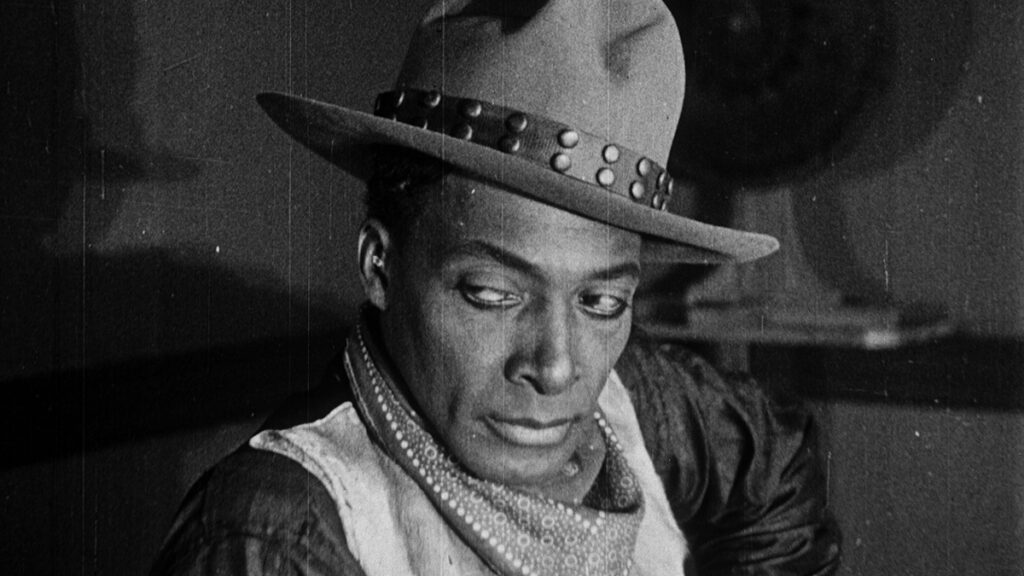
Monday, March 10 @ 7:00 PM / Music Box
THE SYMBOL OF THE UNCONQUERED
Directed by Oscar Micheaux • 1920
The Black independent writer-producer-director Oscar Micheaux had a knack for weaving incidents from his own life into uplifting, politically charged, and often caustic entertainment. Though Micheaux had lost his South Dakota homestead to foreclosure years earlier, he continued to extol the pioneer ethic in numerous novels and movies, including The Symbol of the Unconquered, filmed on the New Jersey frontier. Upon inheriting a modest woodland cabin from her dying grandfather, Eve (Iris Hall) journeys from Selma to Oristown, a small Northwestern community where the color line has been bent but not yet broken. She soon befriends her Black pioneer neighbor Hugh Van Allen (Walker Thompson), who cannot act upon his feelings for Eve because he mistakes her light complexion for white skin. Arrayed against Van Allen’s sunny striving and self-reliance is a motley assortment of local hypocrites, phonies, and two-bit villains: horse thieves, a duplicitous fakir, a defrocked minister, a hotelier-turned-land speculator who denies his own Black identity and turns his enmity back on the race itself. United in their hatred under the guise of Shadow of the Black Cross, they ride at midnight in a fiery effort to drive Van Allen from his land. Released five years after The Birth of a Nation had revived the Ku Klux Klan, The Symbol of the Unconquered sought to turn the routing of a KKK-inspired terror cell into rousing catharsis for Black audiences. (“See the Ku Klux Klan in Action and Their Annihilation,” read Micheaux’s original ad copy.) Ironically, Micheaux’s all-American film survives thanks to a single copy with French and Flemish intertitles in the Royal Belgian Film Archive. Preserved by The Museum of Modern Art with support from Turner Classic Movies. (KW)
66 min • Micheaux Film Corp. • 35mm from the Museum of Modern Art
Preceded by: “Two Knights of Vaudeville” (Ebony Motion Picture Company, 1915) – 11 min – 35mm from Library of Congress
Live musical accompaniment by the Alvin Cobb, Jr. Trio

Monday, March 17 @ 7:00pm / Music Box Theatre
THE FAST AND THE FURIOUS: TOKYO DRIFT
Directed by Justin Lin • 2006
After seven-and-counting entries heavily dedicated to gravityless, CGI-assisted bank robbing/international espionage antics, it can be easy to forget that the Fast & Furious franchise was once about racing cars. The earlier films were far more modest affairs, with a commitment to foregrounding racing melodrama and practical stunt work which reached its apex in the series’ third film, The Fast and the Furious: Tokyo Drift. After a street race with one of the kids from Home Improvement causes an astonishing amount of property damage, high school delinquent Sean Boswell (Lucas Black) gets shipped off to live with his father, a perennially soused Navy lieutenant stationed in Tokyo. Almost immediately, Sean is back to his old ways, linking up with another young American car nut, Twinkie (former kiddie rapper Bow Wow), running afoul of a local organized crime syndicate (with a leader played by legendary martial artist Sonny Chiba), and mastering “drifting,” the locally popular racing technique in which cars slide laterally through corner turns. Unique not only for being an essentially stand-alone entry in the series, but also for its focus on a particular regional racing niche, Tokyo Drift has become the cult favorite of franchise aficionados and skeptics alike, wedding kinetic racing action with leering chrome-and-fiberglass porn in a hymn to the grace of Japanese auto balletics. (CW)
104 min • Universal Pictures • 35mm from Universal
Preceded by: “Routemaster – Theater of the Motor” (Ilppo Pohjola, 1999) – 17 min – 35mm from The Film-Makers’ Coop
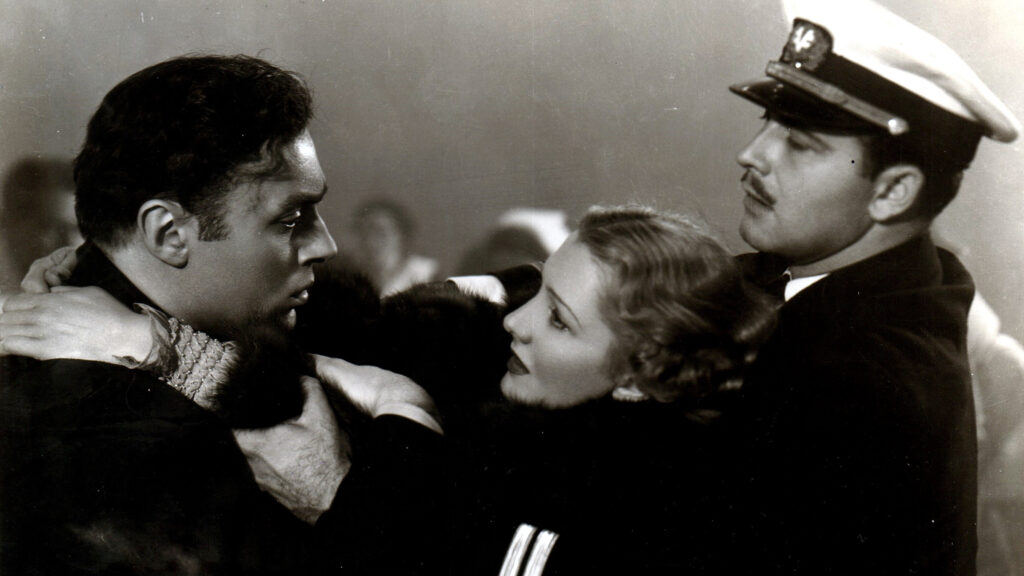
Wednesday, March 26 @ 7:30 PM / NEIU
HISTORY IS MADE AT NIGHT
Directed by Frank Borzage • 1937
“I know the best champagne in Paris.” “Tonight I don’t care if it’s the worst.” Have a Titanic-sized (and shaped) hole in your heart? Fill it with History Is Made at Night, Frank Borzage’s dizzyingly romantic, fizzy, and frenetically assembled melodrama, an enduringly pleasurable film that feels like several in one. Borzage initially agreed to direct History on the strength of its beautiful title, but with four weeks left until the film began shooting, as he later recalled, the script only had two pages; it arguably went on to have more than two genres. The film is shot like a film noir, and sometimes feels like one. As a romance it’s beguiling, as a disaster film it’s enthralling, and as a character study it’s deeply moving. Despite the near-shipwreck of circumstances it depicts, the film is strongly fixated on the power and endurance of romantic love against all odds (tonal shifts be damned), an idea forever close to Borzage’s heart. The film stars a heartbreaking (yet still spirited) Jean Arthur as socialite Irene Vail, an American in Paris on the cusp of divorcing her abusive ex, an obsessive ship magnate who names his giant liner the Princess Irene. She meets a tall, dark stranger (Charles Boyer, never more alluring or affectionate) and bottles begin to pop. Arthur and Boyer, two of the great romantic foils, make a great dance duo and even better lovers, with a practically cosmic meet-cute like no other. History is made; it just happens to be the transformative love shared by two ordinary people from different worlds (or continents). Class differences, sociopathic tycoons, and icebergs are no match for these two. Why would they be, in Frank Borzage’s universe? (RIN)
97 min • Walter Wanger Productions • 35mm from UCLA Film & Television Archive, permission AGFA
Preceded by: The Three Stooges in “Playing the Ponies” (Charles Lamont, 1937) – 15 min – 35mm
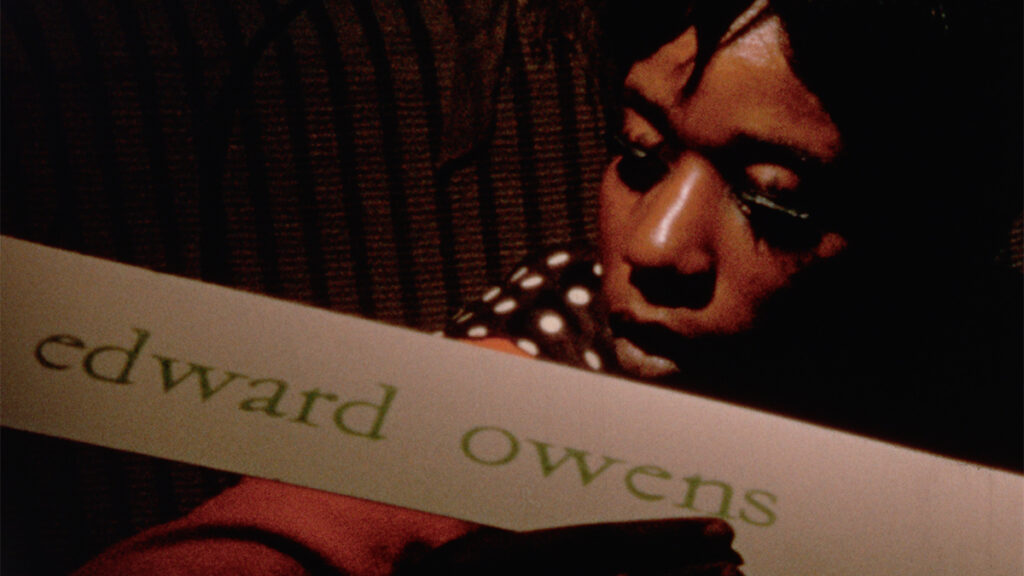
Sunday, April 6 @ 7:00 PM / Chicago Filmmakers
Selections from the 16mm Film Study Collection
For over 50 years, the John M. Flaxman Library’s 16mm Film Study Collection at the School of the Art Institute has been a renowned resource serving faculty, students and researchers within and outside of SAIC’s communities. The collection originates from prints acquired by SAIC’s academic departments and the Film Center, before its transfer to the Library in the 1970s. The Library provides access to over 700 16mm prints spanning the history of film, including a significant number of films by SAIC faculty and alumni. While the collection continues to be an invaluable resource for teaching and research, it also reflects a history of film pedagogy at SAIC, and has become a vital resource for preserving Chicago experimental film history. Following a partnership with the Chicago Film Society to restore the 16mm films of SAIC alumnus Edward Owens, the Library has recently finished new 16mm restorations of Owens’ earlier 8mm work. Owens, a Black queer filmmaker from the South Side of Chicago was a student in the newly formed Film Department at SAIC in the mid-1960s, mentored by its founder, Gregory Markopoulos. In celebration of Chicago’s rich experimental film legacy, and the Flaxman Library’s contributions to it, we are premiering these restorations with a selection of rare prints by Chicago filmmakers from the Film Study Collection.
Program:
Swish (Jean Sousa, 1982) – 3 min
Devotio Moderna (Shellie Fleming, 1993) – 9 min
Blink (Zack Stiglicz, 1998) – 11 min
Sound in Sync (Tatsu Aoki, 1984) – 20 min
Edward Owens 8mm films – approx 30 min
Approx. 70 min total • 16mm
Presented in partnership with the John M. Flaxman Library at the School of the Art Institute of Chicago as part of the Onion City Experimental Film Festival (running April 3 – 6)

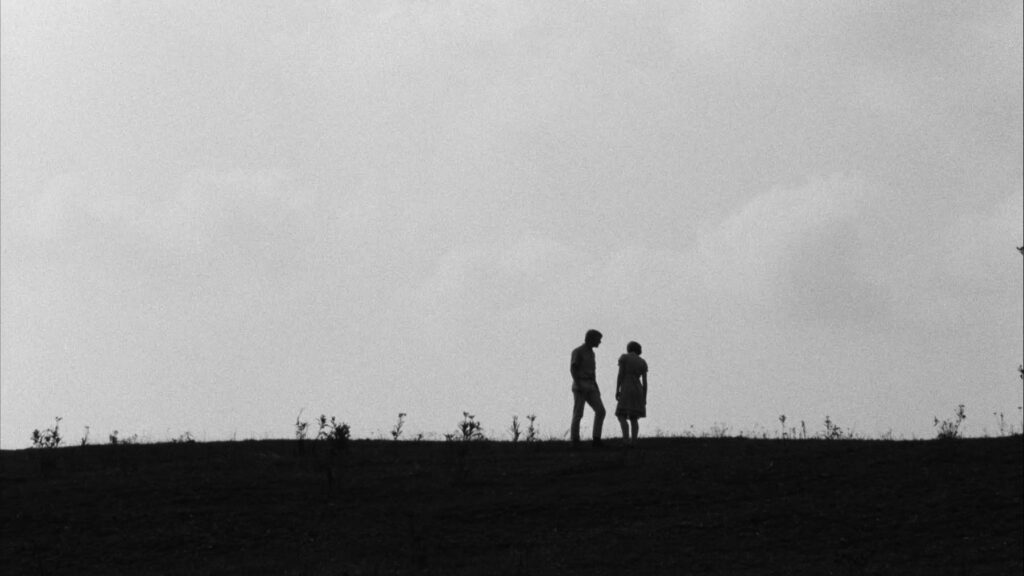
Wednesday, April 9 @ 7:30 PM / NEIU
SPRING NIGHT SUMMER NIGHT
Directed by J. L. Anderson • 1967
Long known simply as the co-author (with Donald Richie) of the seminal 1959 survey The Japanese Film: Art and Industry, Joseph L. Anderson had a brief, exhilarating, and heartbreaking career in filmmaking, too. His first and only feature, Spring Night Summer Night, was made while he was teaching at the Ohio University in Athens, where the availability of the Ohio Bobcats football team’s 16mm cameras and processing equipment had birthed an accidental film department. Anderson began making experiments with his students, culminating in this feature, shot with community theater actors and an all-volunteer student crew in the summer of 1965. (Former student Franklin L. Miller served as co-writer, co-producer, and co-editor alongside Anderson.) Inspired by Ermano Olmi’s I fidanzati and other European art films, the crew applied a lyrical, observational style to potentially lurid material. In the vanishing light of a hollowed-out coal town called Canaan, there’s nothing much for young folks to do but curse, carouse, amble around, and hurl themselves at one another. Trapped in a dead-end marriage, miner’s son Carl (Ted Heimerdinger) lusts after Jessie (Larue Hall), who may or may not be his half-sister. After an ill-fated tryst, Carl splits for Columbus, leaving behind a pregnant Jessie. But before long, Carl is back in town, impelled by desires that he and Jessie dare not speak. Despite the support of documentary filmmaker and MoMA curator Willard Van Dyke, Spring Night Summer Night failed to find a distributor worthy of its artistry. Released under the drive-in-friendly title of Miss Jessica Is Pregnant by exploitation maven Joseph Brenner, Anderson’s film all but disappeared. When the film first resurfaced in 2005 on a dodgy DVD, Rob Nelson celebrated it in the Village Voice as “like a slow swig of Blatz on a dusty road – and maybe the missing link between Shadows and The Last Picture Show.” (KW)
82 min • Triskele, Ltd. • 35mm courtesy of the byNWR Collection at the Academy Film Archive
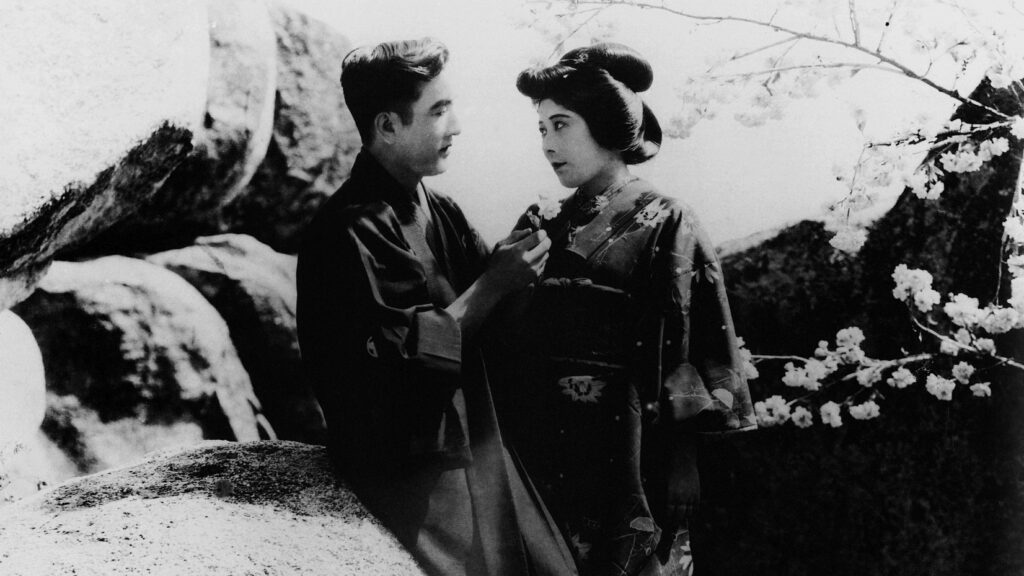
Sunday, April 13 @ 11:30 AM / Music Box Theatre
THE DRAGON PAINTER
Directed by William Worthington • 1919
Sessue Hayakawa was an unlikely star in early Hollywood, a Japanese actor who became a beloved matinee idol in an era of intense anti-Asian prejudice. Frequently typecast in roles that trafficked in exotic stereotypes (and not always Asian ones), Hayakawa eventually set up his own production company, Haworth Pictures Corporation, to bring a more nuanced presentation of Japanese culture to American audiences, often in collaboration with his wife and frequent co-star, Tsuru Aoki, and director William Worthington. The Dragon Painter, a delicate exemplar of the Haworth house style, is a mystical love story that unabashedly wields Orientalist cliches and primitive sexual politics to open American eyes to the aesthetics of non-Western art. Hayakawa stars as Tatsu, a feral cartographer who paints in hopes of capturing the essence of his eternal love, a woman who transformed into a dragon a thousand years ago. The master artist Indara (Edward Peil, Sr.) seeks a protégé who can carry on his legacy, but no one is good enough — except for Tatsu, who lacks the discipline to carry on Indara’s tradition. In a ploy to domesticate the unpredictable talent, Tatsu is tricked into believing that Indara’s daughter Ume-ko (Aoki) is his long-lost beloved in fleeting human form. With its blend of folkloric storytelling, studied naïveté, and staggering photographic beauty, The Dragon Painter finds Hayakawa beating Hollywood at its own game, creating a showcase worthy of his talents. This new restoration from the George Eastman Museum, EYE Filmmuseum, and the San Francisco Silent Film Festival reconstructs the original American release with gorgeous tints and tones and previously unseen footage. (KW)
61 min • Haworth Pictures • 35mm from SF Film Preserve, permission Kino Lorber
Preceded by: “The Death Mask” (Thomas Ince, 1914) – 21 min – 35mm from Library of Congress
Live musical accompaniment by MIYUMI Project Japanese Experimental Ensemble
Sponsored in part by Asian Improv aRts Midwest

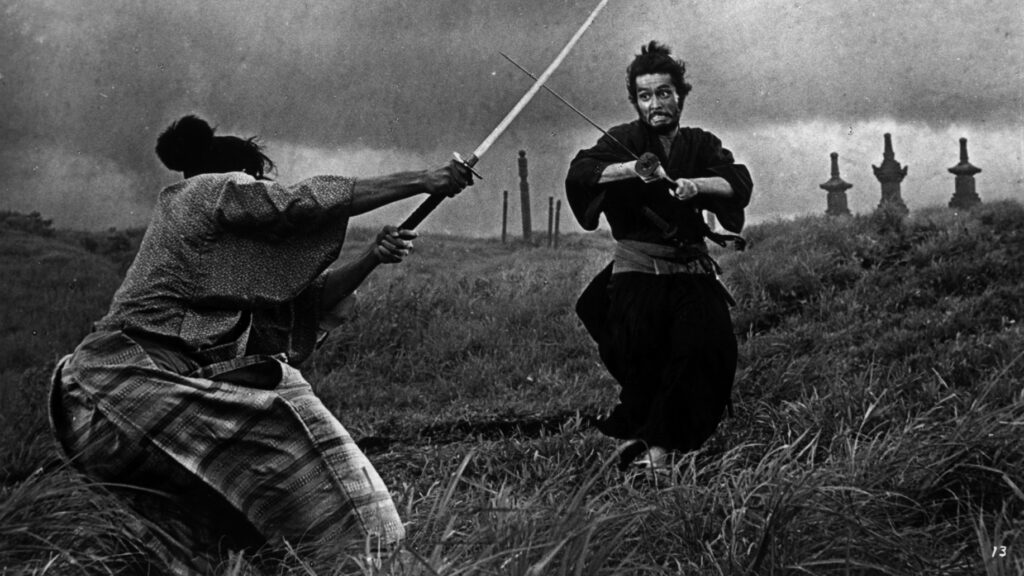
Monday, April 21 @ 7:30 PM / Music Box
HARAKIRI
Directed by Masaki Kobayashi • 1962
In Japanese with English subtitles
One of the great movies about honor (and unemployment), Masaki Kobayashi’s samurai drama Harakiri tells “the hardscrabble tale of a rōnin,” who arrives at the gates of the Iyi clan to share his story and commit seppuku in their courtyard. Of course this is no simple request; the rōnin might actually have a bone to pick with the clan. The story takes place in 1630 (with a generous dose of flashbacks) during feudal Japan’s Edo period, when the Tokugawa family ruled the country. Kobayashi, a pacifist who had been drafted into the war effort in the early 1940s, had a strong aversion to feudalism, hierarchy, and submission to authoritarian power. The historical setting allowed him to explore his interest in postwar Japanese social issues — chiefly corruption, hypocrisy, and denialism of war atrocities — in the guise of a jida-geki, or period film. He first (and more explicitly) explored these topics in undersung yet equally fascinating films, including the sleek, cynical noir The Inheritance and the epic war drama trilogy The Human Condition. Harakiri was released to great international acclaim, taking the Special Jury Prize at Cannes and establishing Kobayashi as a modern master. The visually splendid Harakiri was photographed by cinematographer Yoshio Miyajima (Kobayashi’s frequent collaborator); every shot is rigorously considered, starkly framing both simple human figures and acts of devastating cruelty. As a work of political art, it is as satisfying as it is electrifying — Kobayashi holds a mirror up to his own century’s societal corruption by reckoning with the prolonged influence of the Samurai code, questioning its validity through magisterial storytelling. (RIN)
133 min • Shochiku • 35mm from Janus Films
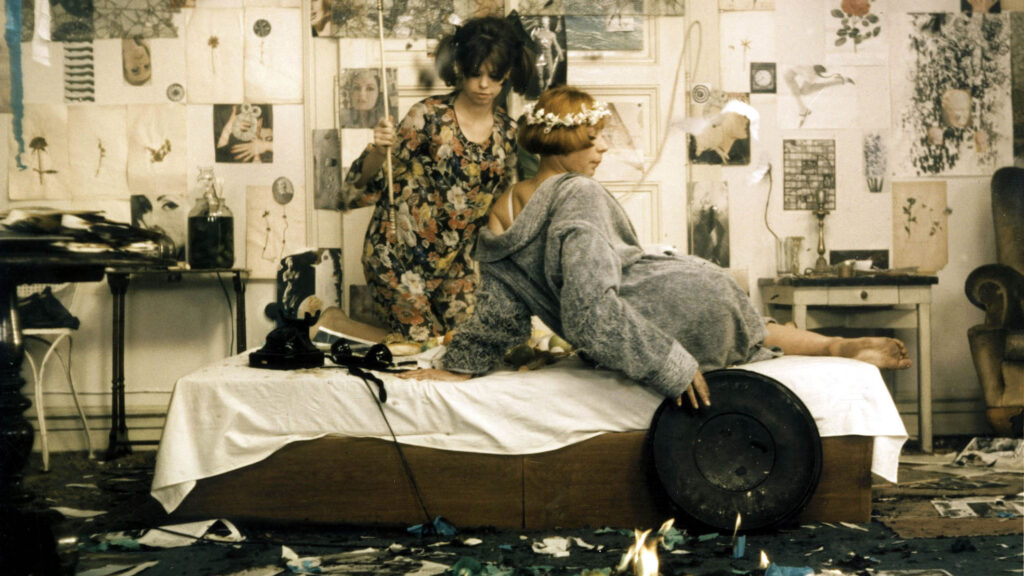
Wednesday, April 30 @ 7:00 PM / MBT
DAISIES
Directed by Věra Chytilová • 1966
In Czech with English subtitles
“We exist! We exist! We exist!” Věra Chytilová’s Daisies bursts with chaotic energy and vivid color, turning each frame into a bold statement of rebellion and laying the groundwork for Czech New Wave cinema. Chytilová described her film as a “philosophical documentary in the form of a farce,” an experimental and psychedelic protest against consumerism, censorship, and authoritarian control. The mischievous and insatiable Marie I and Marie II revel in destruction and excess, daring viewers to decode the political nuance within their antics, all delivered with a heaping dose of subjective realism. In electric montages swirling with surreal imagery, they lounge in bed, create messes, gleefully take advantage of men, and mock the very idea of order and decorum. A film filled with cut-up sausages, eggs, and fragmented bodies, Daisies critiques gender roles, societal expectations, and commodification, all in the guise of chaotic absurdity. To engage with this film, peeling back layers of subtext from its wild exterior, is to expand the limits of our interpretive imaginations. Czechoslovak government officials took a narrower view, threatening to ban the film from distribution for disrespecting the farmers who produced the food “wasted” during the production. Daisies endures as a manifestation of anarchistic feminism and as a radical exhortation to challenge societal norms and power structures. (TV)
75 min • Filmové studio Barrandov • 35mm from Janus Films
Preceded by: “Pests for Guests” (Friz Freleng, 1955) – 7 min – 35mm
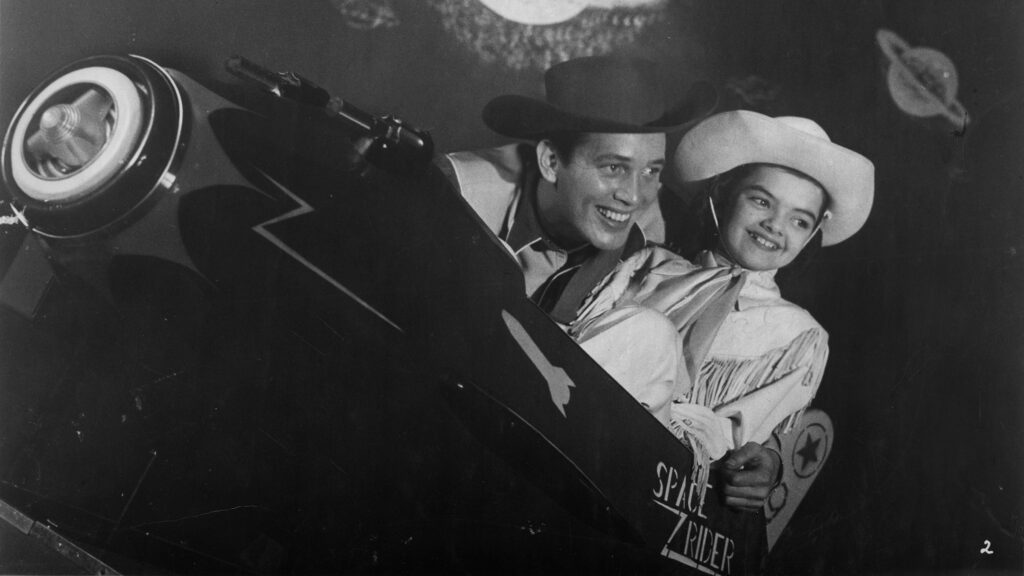
Wednesday, May 7 @ 7:30 PM / NEIU
CORN’S-A-POPPIN’
Directed by Robert Woodburn • 1955
“Who says there are no more frontiers?” asked Boxoffice in a 1954 dispatch from Kansas City. “A group of hardy young people are pioneering in feature production … and loving it.” It sounded like the plot of Summer Stock or innumerable Judy Garland/Mickey Rooney musicals about puttin’ on a show in the old barn, but Boxoffice was writing about a real movie. Independently produced and financed, Corn’s-A-Poppin’ was pitched as a showcase for local musical talent and an unpretentious slice of clean entertainment for the whole family. It helped that the producer’s brother was chairman of The Popcorn Institute, a local trade group formed to promote snacks and snack accessories, effectively making Corn’s-A-Poppin‘ a feature-length sponsored film about the wonders of the food and beverage industry. In a twist, the film is a cautionary tale about the dangers of selling out to predatory sponsors. Down-home crooner Jerry Wallace plays Johnny Wilson, the host of the Pinwhistle Popcorn Hour, a TV variety show with acts ranging from Hobie Shepp and the Cowtown Wranglers to pro hog caller Lillian Gravelguard. Is Lilian’s act an attempt at sabotage orchestrated by rogue PR man Waldo Crummit in a bid to gut the Pinwhistle Empire? It’s up to Johnny’s sister Susie (Little Cora Rice) to save the day. Alas, this infectiously entertaining western swing musical did not find an audience, playing only a handful of small-town cinemas and drive-ins, often on the same bill with live acts that made Lillian Gravelguard look like Liberace. The film was dismissed and forgotten, not least by the people who made it, including up-and-coming local screenwriter Robert Altman. Largely an unseen footnote until Chicago Film Society selected the film as its first-ever photochemical restoration project in 2013, Corn’s-A-Poppin‘ is now well on its way to achieving its long-deserved cult status and will undoubtedly leave you hooting, hollering, and singing along with “On Our Way to Mars.” Restored by Chicago Film Society with funding from the National Film Preservation Foundation. Additional material courtesy of the Wisconsin Center for Film and Theatre Research. (KW)
58 min • Crest Productions, Inc. • 35mm
Preceded by: CFS Fun Pack – 16 min – 35mm
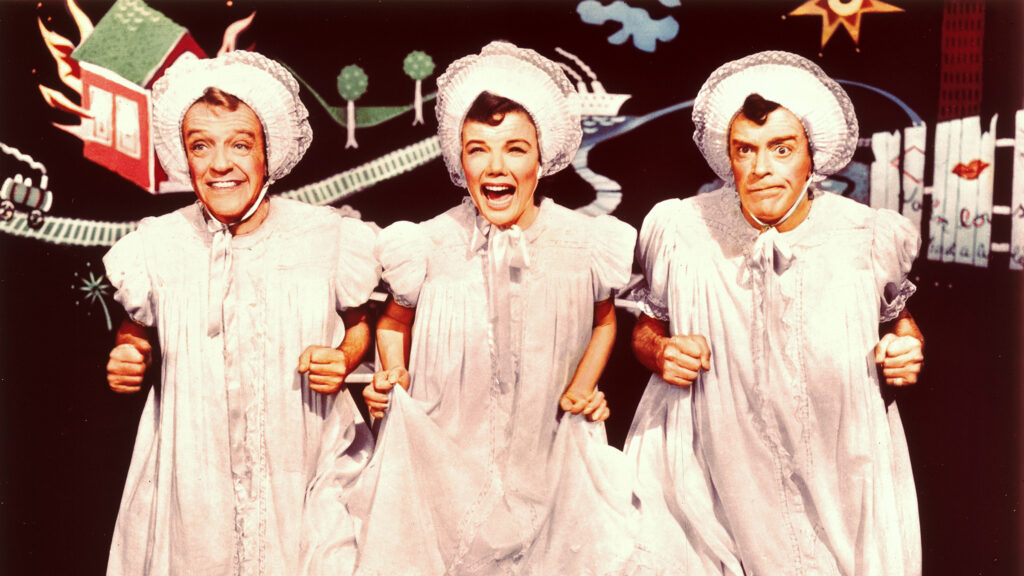
Wednesday, May 14 @ 7:30pm / NEIU
THE BAND WAGON
Directed by Vincente Minnelli • 1953
The classic Hollywood musical has long been a staple of CFS programming, stretching back to our screenings of Beware and The Smiling Lieutenant in our very first season fourteen years ago. Aside from the obvious pleasures of watching charming and attractive movie stars sing, dance, and crack jokes, we love musicals for being quintessentially big-screen film experiences. There are few oeuvres more suited to demonstrating this quality than that of window-dresser turned film director Vincente Minnelli (Meet Me in St. Louis, Yolanda and the Thief). With their evocative color palettes, expressive camera work, and methodical art direction, Minnelli’s musicals of the 1940s and ’50s are among the best arguments we’ve ever encountered for 35mm projection, the format where you can really savor the richness of their details and the saturation of their colors. For sheer, unadulterated joy in cinema, few films by Minnelli (or anybody else for that matter) match The Band Wagon. Fred Astaire stars as Tony Hunter, a waning star of stage and screen who is offered a career lifeline in the form of a new musical comedy, only to be buried under the multiplying, myopically obsessive egomanias of the show’s various cast and crew (punctuated with reliably peppy production numbers, such as “Louisiana Hayride” and the iconic “Triplets”). By midway through reel 5, everything’s pretty much resolved, and for the remainder of the picture we get to simply bask in the sheer joy that comes with putting on a show. That’s Entertainment! (CW)111 min • M-G-M • 35mm from Park Circus, permission Swank
Preceded by: “Field and Scream” (Tex Avery, 1955) – 7 min – 35mm
Programmed and Projected by Julian Antos, Becca Hall, Rocío Irizarry Nuñez, Rebecca Lyon, Tavi Veraldi, Kyle Westphal, and Cameron Worden.
Research Associate: Mike Quintero
Ambassador / Additional Capsules: Gabriel Wallace
Additional film inspection: Jiayi Chen, Tristen Ives, Leila Sherbini
The Chicago Film Society is a 501(c)(3) nonprofit organization. CFS acknowledges support from the Illinois Arts Council and from the City of Chicago Department of Cultural Affairs & Special Events’s CityArts grant program.
Heartfelt thanks:
Shayne Pepper, Cyndi Moran, Robert Ritsema, & Jose Aguinaga of Northeastern Illinois University; Brian Andreotti & Ryan Oestreich of the Music Box Theatre; David Antos; Brian Belovarac of Janus Films; Bret Berg of AGFA; James Bond of Full Aperture Systems; Chris Chouinard of Park Circus; Peter Conheim; Justin Dennis of Kinora; Jack Durwood of Paramount; Tatiana Faris of IFC Films; Cary Haber of Criterion Pictures, USA; Jason Jackowski of Universal Pictures; Gabrielle Lyon; Heather McAdams & Chris Ligon; Douglas McLaren & Ben Ruder of the University of Chicago Film Studies Center; Kathy Rose O’Regan of San Francisco Film Preserve; Beth Rennie & Sophia Lorent of George Eastman Museum; Lynanne Schweighofer & Andy Whitmore of the Library of Congress; George Schmalz of Kino Lorber; Katie Trainor & James Layton of the Museum of Modern Art; Nancy Watrous, Olivia Babler, & Mickey Gral of Chicago Film Archives; Todd Wiener & Steven K. Hill of UCLA Film & Television Archive; and Kathryn Wilson. Particular thanks to CFS board members Raul Benitez, Mimi Brody, Steven Lucy, Brigid Maniates, & Artemis Willis, and CFS advisory board members Brian Block, Lori Felker, & Andy Uhrich.
And extra special thanks to our audience, who make it all possible!



